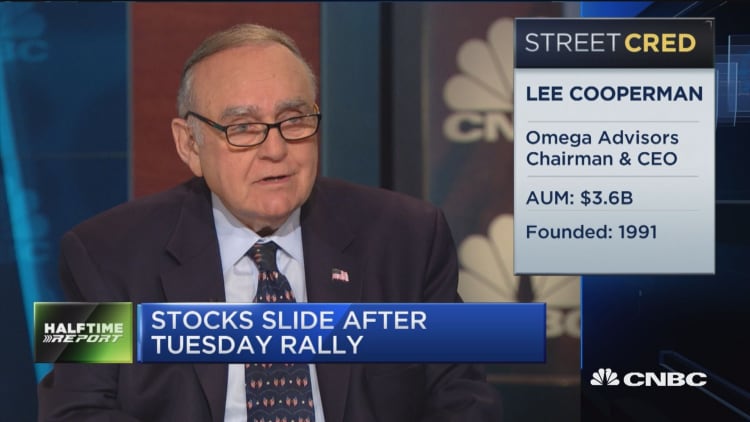Billionaire Leon Cooperman advised investors on Wednesday to stay away from bonds as they are in a bubble.
"My world is cash and stocks. I think bonds are the bubble, not stocks," Cooperman told CNBC's "Halftime Report." He also noted investors should buy stocks they see as "fundamentally cheap" after a recent decline in equities.
Cooperman's comments come after the benchmark 10-year note yield rose to 3.261 percent last week, its highest level since 2011. The sharp rise in rates spooked investors across the globe, with world equities falling sharply last week.
The Federal Reserve dropped its overnight interest rates to zero in the aftermath of the financial crisis as it tried to jump-start the U.S. economy. This pushed yields down to historical lows, thus sending bond prices higher and to levels that some investors like Cooperman say reached bubble proportions. Now the Fed is reversing these policies by rising interest rates and trimming its balance sheet. The central bank has already hiked rates three times this year and is forecast to raise them once more before year-end.

Investors were worried that a rise in rates would lead to higher borrowing costs and thus slow down the global economy.
Cooperman, CEO of Omega Advisors, said the market can handle higher interest rates, however, as there are no signs of a recession looming.
"The economy, if anything, is too strong," Cooperman said. "The economy is on fire. … The conditions that normally lead to a big decline just aren't present."
Cooperman's comments come as U.S. stocks try to recover from a 4.1 percent decline last week amid worries about higher rates, tech valuations and fears of a global economic slowdown.
But Cooperman thinks stocks will bounce back from this decline as they are fairly valued. He also noted the market can handle higher interest rates.
"My central view is the market will be higher than it is today at year-end," he said. "We're in a zone of fair value and it's going to take a recession or a change in the Fed's posture" to get us out of that.


